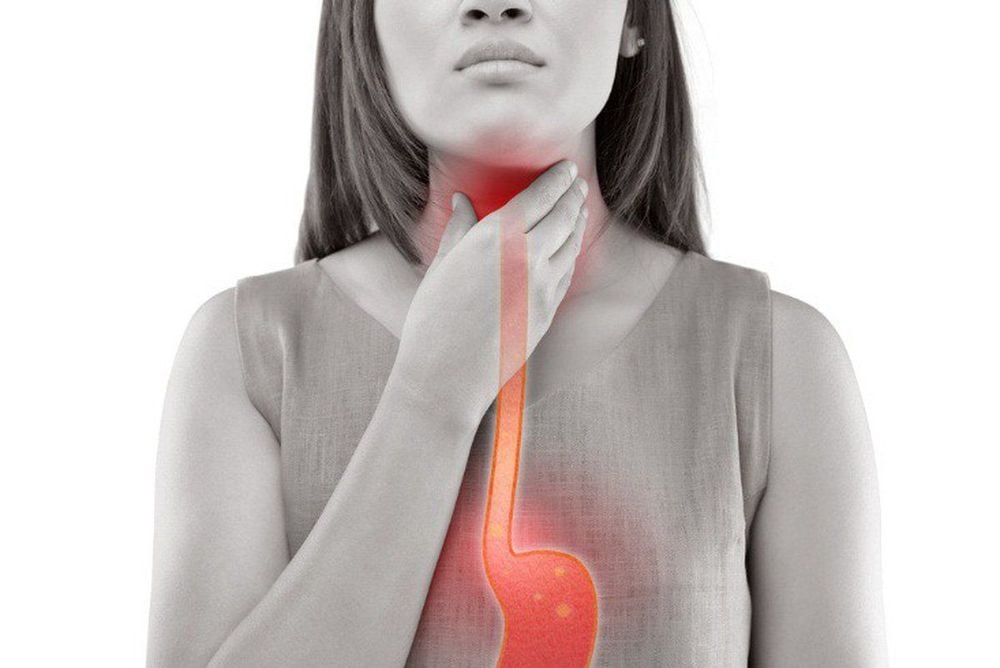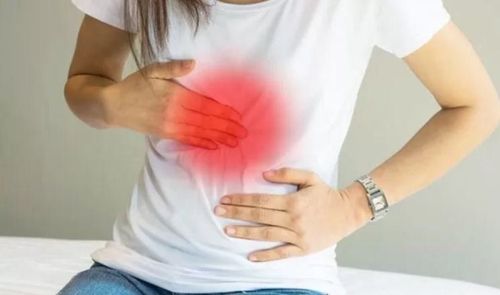This is an automatically translated article.
Article written by MSc Ta Que Phuong - Gastroenterologist - Endoscopy - Department of General Internal Medicine - Vinmec Times City International Hospital
Indigestion, also called dyspepsia, is discomfort or pain in the upper part of the digestive tract (stomach, esophagus, or duodenum). Indigestion encompasses a different set of symptoms such as bloating, nausea, and heartburn, and is often a sign of another underlying problem.
1. Approach to diagnosis of functional dyspepsia
Indigestion can be a manifestation of a mild digestive disorder such as after a greasy meal, stomach pain... This condition will go away on its own after a few hours. However, if persistent indigestion is often accompanied by other symptoms such as weight loss, anemia, vomiting, ... then you should check your health as soon as possible because this may be a sign of a medical condition. more serious illness.
2. Causes of functional dyspepsia
Indigestion is considered a symptom rather than a disease. Several diseases can cause indigestion:Gastroesophageal reflux disease (GERD) Obesity increases the risk of indigestion; Stress or anxiety; Irritable Bowel Syndrome (IBS) Gastritis , usually caused by Helicobacter pylori ; Stomach ulcers ; Stomach cancer ; Certain medications can also cause indigestion: Aspirin and a class of pain relievers called NSAIDs (non-steroidal anti-inflammatory drugs); Estrogen and oral contraceptives; Steroid drugs; some antibiotics; thyroid medications.

3. Diagnosis of functional dyspepsia
To help determine if the causes of your symptoms are other than functional dyspepsia, your doctor will ask you questions and perform a physical exam. Questions to think about before your visit include:
Is the pain "smoldering" or does it increase when you're hungry? Does the pain increase when you move in certain ways or press on certain areas of the abdomen? Do you take pain relievers, such as aspirin, ibuprofen (Advil, Motrin), or naproxen (Aleve)? Do you have a history of ulcers? Do you also have heartburn (a burning sensation that increases below the breastbone? Do you have severe pain in the upper right or middle of the abdomen? Does the pain go through the back or between the shoulder blades? Does this happen?) cyclical vomiting, sweating, or feeling restless Has there been a change in your bowel movements (constipation or diarrhea) Have you recently had unintentional weight loss, vomiting persistent or difficult swallowing do you have a family history of stomach cancer 3.1 exploratory tests If there are alarming symptoms, such as repeated vomiting, weight loss or difficulty swallowing, you should do
Vinmec uses the world's leading high quality Evis Exera III (CV-CLV 190) endoscope system with NBI (Narrow Band Imaging) function of Olympus Company (Japan) ) The machine uses only two wavelengths 415nm and 540nm allowing for more thorough, detailed analysis and better results for the smallest changes of the stomach. will denounce t than conventional high-resolution endoscopic methods.
In addition, at Vinmec International General Hospital, the scanner is disinfected with an Olympus washing machine, after disinfection is stored in a dedicated cabinet with ultraviolet rays to disinfect the air, the scanner is wrapped in sterile sterile paper. bacteria during transport to the endoscopy room. Instruments used during endoscopy are disposable or autoclaved and packaged at the hospital's sterilization center.
Besides, the hand hygiene of medical staff at the hospital is strictly followed, the procedures are fully checked before performing. Therefore, when performing endoscopy at Vinmec International General Hospital, customers can be assured of the "cleanliness" of the endoscope as well as minimize the possibility of infection during the procedure. scan, accuracy and safety of procedures.
If there are no alarming symptoms or a family history of stomach cancer, tests include a breath, blood, or stool test for H. pylori. If your symptoms do not improve within 4-8 weeks or your symptoms are more advanced, an upper gastrointestinal endoscopy should be performed to evaluate
Abdominal ultrasound or CT-scan of the abdomen: to rule out biliary tract disease and pancreas.
Test: look for parasites in stool, occult blood in stool, biochemistry
3.2 Diagnosis is by: ROME III The patient must have at least 1 of the following symptoms:
Postprandial bloating. Eat well. Epigastric pain. Burning epigastric.

Postprandial discomfort syndrome: fullness, bloating when eating quickly. Epigastric pain syndrome: epigastric burning or epigastric pain unrelated to biliary tract disease. These two syndromes can be seen in the same patient with functional dyspepsia. Functional dyspepsia is still a diagnosis of exclusion. The patient with functional dyspepsia had a normal upper gastrointestinal tract endoscopic picture.
4. Diet to help limit indigestion
Some people experience less pain and discomfort after changing their diet. This may include:Eat the right amount of food at each meal, not overeating; can divide meals as needed. Avoid staying up late, eating too late at night if you have indigestion at night. Avoid spicy, fatty foods that can trigger heartburn. Eat slowly; chew thoroughly. Quit or reduce smoking. Lose weight properly. Avoid drinking too much coffee, soft drinks, and alcohol, avoiding stress and anxiety. Talk to your doctor about alternatives to medications that irritate the stomach lining, such as NSAIDs and aspirin; If you have questions about what to eat, talk to your doctor, nurse, or dietitian. Indigestion is often a manifestation of gastrointestinal disease. The causes of dyspepsia are diverse, and may be due to a specific disease in the gastrointestinal tract or as a side effect of medication. You need to pay attention if the symptoms of indigestion persist and are accompanied by alarming symptoms such as weight loss, gastrointestinal bleeding, especially in the elderly.
Please dial HOTLINE for more information or register for an appointment HERE. Download MyVinmec app to make appointments faster and to manage your bookings easily.
Article reference source: update.com













